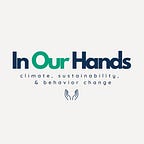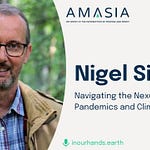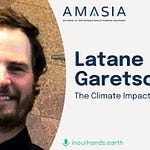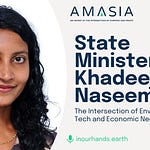In this episode, Ramanan speaks with Michael Weisberg, Bess W. Heyman President's Distinguished Professor and Chair of Philosophy at the University of Pennsylvania, where he also co-directs the Galápagos Education and Research Alliance and directs post-graduate programs at Perry World House under the aegis of Penn Global. They discuss scientific models, the Galápagos, resistance to science, and Weisberg’s contributions to the IPCC.
Full transcript available above. This episode is also available on Apple Podcasts and Spotify.
In Our Hands is a production of Amasia. Follow these links for more about our firm, the Amasia blog, our climate fiction podcast, and Ramanan’s blog.
Highlights
[00:05:40] Penn’s Philosophy Department












